Facial Feminization Surgery (FFS) in Croatia
Search and Compare the Best Clinics and Doctors at the Lowest Prices for Facial Feminization Surgery (FFS) in Croatia

Find the best clinics for Facial Feminization Surgery (FFS) in Croatia
No clinics available
Thailand offers the best prices Worldwide
Price: $ 1,945

- Home
- Croatia
Compare Before & After Photos of _procedure_photos.phpFacial Feminization Surgery (FFS)
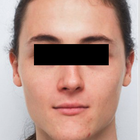
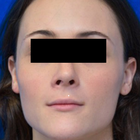
Front view
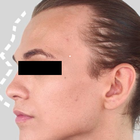
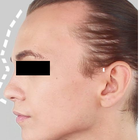
Half-side view
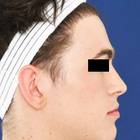
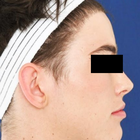
Full-side view
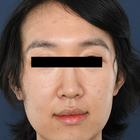
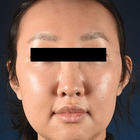
Front view
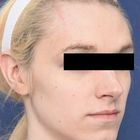
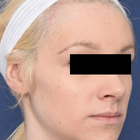
Half-side view
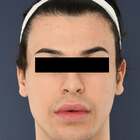
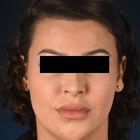
Front view
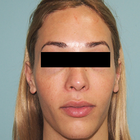
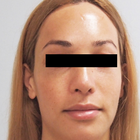
Front view
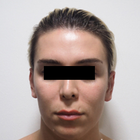

Front view
WHY US?
At Medijump, we're making medical easy. You can search, compare, discuss, and book your medical all in one place. We open the door to the best medical providers worldwide, saving you time and energy along the way, and it's all for FREE, no hidden fees, and no price markups guaranteed. So what are you waiting for?

Free

Best Price

Widest Selection

Risk-Free
What you need to know about Facial Feminization Surgery (FFS) in Croatia
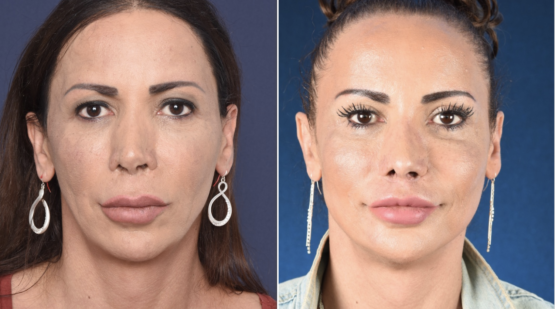
Facial Feminization Surgery, often abbreviated as FFS, is an extensive surgical process designed to modify masculine facial characteristics into a more feminine appearance. The procedure comprises several surgeries including rhinoplasty, forehead recontouring, and jaw and chin modifications. FFS is frequently sought after by transgender women desiring to more authentically express their gender identity. Any potential patient is advised to consult with a licensed surgeon to personalize the surgical plan according to their specific needs and aspirations.
Facial Feminization Surgery (FFS) usually necessitates an exhaustive pre-procedure assessment. This involves a thorough review of the patient's medical history, a complete physical examination, a psychological evaluation, and possibly facial x-rays. The surgeon will also discuss the aesthetic objectives, benefits, risks, and potential complications of the surgery with the patient. A collaborative decision-making approach is used to ensure patient safety and contentment following the procedure.
In this before and after example, the patient underwent Rhinoplasty, Chin recontouring, Jaw reduction, Lip lift, and eyelid surgery (blepharoplasty). The photo is taken 4 months post-op.
What is the cost of Facial Feminization Surgery (FFS) in Croatia?
Various elements such as the surgical complexity, hospital stays, anesthesiologist costs, and surgeon's fees influence Facial Feminization Surgery (FFS) pricing in Croatia. On average, possible charges vary from $20,000 up to $50,000. A detailed price breakdown from your healthcare provider will provide an exact view of the cost details.
The value of the procedure does not necessarily need to compromise the quality and standards of the surgery. Gain clarity about what components are inclusive and exclusive in the overall cost to understand thoroughly what your payment encompasses. Insurance firms usually do not cover aesthetic procedures, hence comprehensive knowledge and prudent financial preparation will streamline the procedure and make the Facial Feminization Surgery (FFS) a valid investment in enhancing your self-perception and assurance.
What does a Facial Feminization Surgery (FFS) Procedure Involve?
Facial Feminization Surgery (FFS) entails a range of tailored techniques aimed at personal needs with a focus on feminizing and gently modifying the facial structure. These techniques may encompass forehead reshaping, adjustments to the jaw and chin, rhinoplasty, facelifts, and other unique enhancements. The rising trend in health and well-being-oriented medical research is mirrored in personalized surgery schemes, ensuring the outcomes are attuned to individuals.
Normally, a care center will execute an in-depth consultation process to comprehend your aesthetic aspirations and draft a surgical blueprint. This evaluation is essential in harnessing the maximum advantages from the Facial Feminization Surgery (FFS). Ensuring the health and safety of the patient, a pre-operative assessment, encompassing a review of physical health and mental well-being, is a crucial measure.
How Long Should I Stay in Croatia for a Facial Feminization Surgery (FFS) Procedure?
During the planning phase for Facial Feminization Surgery (FFS), considering the necessary time for the operation and subsequent recovery is vital, in order to ensure a seamless return to standard duties. The length of your Croatia visit is heavily influenced by the surgery’s intricacy, your personal health condition, and your recovery speed. Generally, a timeframe of one to two weeks is advised before getting back to everyday activities.
However, the precise timeline can differ considerably, with follow-up meetings commonly arranged during your stay. These are paramount for evaluating your progress and identifying any possible surgical complications. This window also presents a chance for practising respiratory exercises and other preventive health methods to expedite a seamless recovery. Adherence to all the instructions given by your surgeon during this term is critical, as this significantly influences the success rate of the Facial Feminization Surgery (FFS).
What's the Recovery Time for Facial Feminization Surgery (FFS) Procedures in Croatia?
Recovery from Facial Feminization Surgery (FFS) can differ among individuals, largely depending on the procedure's scope and the patient's overall health. Usually, patients require approximately six weeks of recuperation before they can engage in strenuous activities. During this time, individuals may experience swelling, bruising, and discomfort related to the surgery, but these symptoms typically diminish over time.
Getting plenty of rest, maintaining adequate hydration, and consuming a balanced diet can aid in accelerating recovery. It's vital to strictly follow the healthcare provider's advice regarding prescribed medicines, care of surgical wounds, and limitations on activities to prevent complications and promote healing. Keep in mind that health and well-being extend beyond the surgical procedure itself, so comprehensive aftercare is essential for successful outcomes.
What sort of Aftercare is Required for Facial Feminization Surgery (FFS) Procedures in Croatia?
Appropriate aftercare is a vital component of successful Facial Feminization Surgery (FFS) and significantly influences the recovery process. It may include prescribed medications, regular medical check-ups, custom-made nutrition plans, and effective weight management. The recovery phase could span several weeks, during which adequate rest is paramount for a seamless recuperation.
Patients are often advised by their surgeons to temporarily abstain from rigorous physical activities and to maintain a healthy lifestyle. The latter should incorporate balanced nutrition, staying hydrated, taking supplements, and ensuring proper sleep and mental health management. It's important to note that adherence to the prescribed aftercare plan and attendance at follow-up visits are key to tracking improvements and promptly addressing any potential complications.
What's the Success Rate of Facial Feminization Surgery (FFS) Procedures in Croatia?
Facial Feminization Surgery (FFS) is recognized as an extremely successful surgery that produces transformative and enduring outcomes. The success rate fluctuates depending on various factors, including the proficiency of the surgeon, the overall health of the patient, and the quality of care after the surgery. A majority of patients report high levels of satisfaction, citing increased self-confidence and an enhanced quality of life.
It's important to understand, however, that despite its high success rate, the procedure isn't without potential risks and complications. Complications like infections, scarring, and dissatisfaction with the aesthetic outcome are potential, though they are rare occurrences. Thorough pre-operative evaluations, skilled surgical hands, and comprehensive post-operative care significantly lessen these risks. Consequently, when selecting the most suitable protocol for your Facial Feminization Surgery (FFS), the guiding factors should be patient safety and satisfaction.
Check out this video for before and after images of FFS patients, you'll be amazed by some of the results made possible by this surgical procedure.
Are there Alternatives to Facial Feminization Surgery (FFS) Procedures in Croatia?
Bear in mind that each person's needs and preferences are distinct, and surgical interventions might not be the most suitable route for everyone. There are other alternatives available for those who might be more inclined towards non-surgical solutions. Aesthetic treatments like injectable fillers, Botox, and others can simulate some effects of the Facial Feminization Surgery (FFS) on a temporary basis. However, cosmetic treatments of this kind typically necessitate ongoing sessions to preserve the sought after result.
Furthermore, some individuals might prefer to engage in psychological or behavioral therapies that encourage self-acceptance and a positive body image. Such therapies address the mental health components of self-image and gender dysphoria, offering a different perspective to surgery. Having open-ended discussions with healthcare providers to explore all the available options prior to making a decision is strongly advised.
What Should You Expect Before and After the Facial Feminization Surgery (FFS)?
Prior to undertaking Facial Feminization Surgery (FFS), patients participate in an in-depth consultation process. During this stage, surgeons evaluate the individual's health status, expectations, and motivations to design a treatment program that best meets their needs. Various health screenings may be conducted to verify the patient's physical suitability for the operation.
Post-procedure, initial weeks may bring about some degree of discomfort, swelling, and bruising, which will progressively decrease. Adequate post-procedure care can significantly improve recovery and the ultimate outcome of your Facial Feminization Surgery (FFS). It's crucial to maintain regular communication with your surgeon and promptly report any unusual symptoms. The goal is to ensure a successful surgical procedure followed by a rapid and smooth recovery, guiding you towards a more self-assured version of yourself.
What is the Preoperative Preparation for Facial Feminization Surgery (FFS) in Croatia?
Preparing for Facial Feminization Surgery (FFS) entails addressing both physical and mental aspects to ensure successful surgery and recuperation. Patients undergo comprehensive evaluations involving various diagnostic tests to determine their overall health and suitability for the surgery. Moreover, patients may need to halt tobacco use, moderate alcohol consumption, and adjust certain medications—especially those affecting blood clotting—as these factors could disrupt both the surgical process and healing.
In addition, therapy sessions may be suggested to assist individuals in managing the psychological implications of such a life-changing procedure. A balanced diet is also pivotal in enhancing the body's healing capacity; adopting a healthy eating regimen, such as the Mediterranean diet, and considering suitable nutritional supplements can optimize preoperative preparation. Emphasizing mental wellbeing is another vital aspect of the journey, and implementing stress management strategies can prove beneficial during this period.
What are the Long-term Implications of Facial Feminization Surgery (FFS) in Croatia?
Facial Feminization Surgery (FFS) is often viewed as a long-term commitment that yields lasting and significant transformations. It significantly enhances self-image and self-confidence, leading to a substantial improvement in life quality. Though the changes induced by the surgery are generally unchanging, sustaining a consistent weight and adopting a healthy lifestyle are vital in preserving the results.
It's important to bear in mind that adjusting psychologically is an integral aspect of such a transformative experience. Individual or group therapies can aid in navigating these changes, fostering deep-seated growth and self-understanding following the Facial Feminization Surgery (FFS). Always remember, the success of a procedure goes beyond the physical alteration—it also involves overall wellbeing, health, and a positive life perspective.
Whilst the information presented here has been accurately sourced and verified by a medical professional for its accuracy, it is still advised to consult with your doctor before pursuing a medical treatment at one of the listed medical providers
No Time?
Tell us what you're looking for and we'll reachout to the top clinics all at once
Enquire Now

Popular Procedures in Croatia
Prices Start From $96

Prices Start From $111

Prices Start From $70

Prices Start From $16

Prices Start From $220

Prices Start From $28

Prices Start From $672

Prices Start From $275

Prices Start From $101

Prices Start From $556

Prices Start From $4,377

Recommended Medical Centers in Croatia for procedures similar to Facial Feminization Surgery (FFS)

- Interpreter services
- Translation service
- Religious facilities
- Medical records transfer
- Medical travel insurance
- Health insurance coordination
- TV in the room
- Safe in the room
- Phone in the room
- Private rooms for patients available

- Interpreter services
- Translation service
- Religious facilities
- Medical records transfer
- Medical travel insurance
- Health insurance coordination
- TV in the room
- Safe in the room
- Phone in the room
- Private rooms for patients available

- Interpreter services
- Translation service
- Religious facilities
- Medical records transfer
- Medical travel insurance
- Health insurance coordination
- TV in the room
- Safe in the room
- Phone in the room
- Private rooms for patients available

- Interpreter services
- Translation service
- Religious facilities
- Medical records transfer
- Medical travel insurance
- Health insurance coordination
- TV in the room
- Safe in the room
- Phone in the room
- Private rooms for patients available

- Interpreter services
- Translation service
- Religious facilities
- Medical records transfer
- Medical travel insurance
- Health insurance coordination
- TV in the room
- Safe in the room
- Phone in the room
- Private rooms for patients available

- Interpreter services
- Translation service
- Religious facilities
- Medical records transfer
- Medical travel insurance
- Health insurance coordination
- TV in the room
- Safe in the room
- Phone in the room
- Private rooms for patients available

- Interpreter services
- Translation service
- Religious facilities
- Medical records transfer
- Medical travel insurance
- Health insurance coordination
- TV in the room
- Safe in the room
- Phone in the room
- Private rooms for patients available

- Interpreter services
- Translation service
- Religious facilities
- Medical records transfer
- Medical travel insurance
- Health insurance coordination
- TV in the room
- Safe in the room
- Phone in the room
- Private rooms for patients available

- Interpreter services
- Translation service
- Religious facilities
- Medical records transfer
- Medical travel insurance
- Health insurance coordination
- TV in the room
- Safe in the room
- Phone in the room
- Private rooms for patients available

- Interpreter services
- Translation service
- Religious facilities
- Medical records transfer
- Medical travel insurance
- Health insurance coordination
- TV in the room
- Safe in the room
- Phone in the room
- Private rooms for patients available
Facial Feminization Surgery (FFS) in and around Croatia
About Croatia
Despite its relatively small size, Croatia presents a striking geographical diversity. It undoubtedly has a unique charm for those indulging in fantasies of an idyllic beach holiday. Being home to a vast stretch of seafront that spans thousands of miles and an intriguing archipelago with hundreds of islands, Croatia upholds a significant appeal for lovers of sun, sand, and surf.
Beyond its appealing coastlines, Croatia encompasses much more in its terrains. The expanse of the country is dotted with rugged, dramatic mountains that serve as the perfect backdrop to ancient towns that are enclosed within historical walls. The country is rich in untouched national parks that are truly a paradise for nature enthusiasts.
You also get a glimpse of regal history through majestic castles that mark the Croatian landscape. The icing on the cake is its fantastic cuisine that adds a flavorful dimension to one's experiences. Last but not least, the impressive Roman ruins scattered across the country are a testament to its astonishing historical heritage, enticing history buffs worldwide to explore Croatia.
Although Croatia is a newcomer to the medical tourism sector, the demand for medical services in the country by foreign patients is increasing. Its strong growth is largely driven by the high cost of private care and long waiting times in public healthcare in countries such as the UK and the US. Croatia is known to have affordable, top-quality treatments performed by highly qualified medical professionals. Also, medical centers in the country have modern equipment, friendly staff, and exceptional services.
Popular Parts of Croatia
Zagreb, the bustling capital of Croatia, is a vibrant city that boasts a blend of verdant parks, unconventional art galleries, and enticing museums. Even though the city pulsates with modern energy, its scenery stands distinguished by an array of neo-baroque and art deco buildings that impart a unique architectural charm.
The vibrant city of Zagreb brims with an eclectic mix of attractions that can appeal to a wide range of tastes and interests. One such unique point of interest is the Museum of Broken Relationships. This peculiar museum offers an offbeat exploration into the vestiges of love that has ended, providing a distinctively intimate glimpse into personal stories of heartbreak.
Another notable site that significantly attracts visitors is the serene Mirogoj. Not just an ordinary cemetery, Mirogoj stands out as one of the finest architectural gems in Croatia, offering a peaceful retreat within the lively cityscape. Balancing modern dynamics with a deep-rooted cultural heritage, Zagreb indeed offers engaging facets for every type of traveler.
The Croatian Museum of Naïve Art, standing as a symbol of the country’s rich artistic history, is a must-visit for art aficionados. Further, the bustling Dolac Market is the city's epicentre for fresh produce where locals and tourists alike converge. Rounding off the list is the Funicular Railway, another essential experience that offers a charming way to take in Zagreb's panoramic views.
Those who want to enjoy Croatian’s famous beaches and explore ancient monuments should visit Dubrovnik. Known as the “Pearl of the Adriatic,” this city has a giant walled Old Town, stunning mountains, and idyllic beaches.
Weather and Climate in Croatia
Croatia's summer season, extending from July to August, is characterized by lovely warm weather and dry conditions, with a generous sprinkling of sunshine across most days. Transition seasons such as spring (April to June) and autumn (September to October) also offer a fairly warm and agreeable climate, making them pleasant times to visit. However, the spring season can sometimes bring increased rainfall.
On the other hand, winters in Croatia, particularly in January, can dip into colder temperatures. This chill factor is more pronounced in areas of higher elevations, where it's common to witness snowy landscapes. Each season in Croatia brings with it a distinctive climate and charm, shaping the country's scenic beauty in different ways throughout the year.
As the calendar flips over to the cooler months, the Croatian landscape transitions from sun-kissed beaches to frost-laden terrains, especially in the elevated regions of the country. Here, it is not unusual to see snowfall, adding a whole new dimension to Croatia's captivating beauty. Still, regardless of the weather, Croatia retains its charm, offering visitors an array of unique experiences all year round. The country's seasonal moods only add to its diverse appeal, ensuring that there's always something beautiful to see or experience, making Croatia a truly year-round destination.
Getting around in Croatia
Zagreb Airport claims the title of being the largest and most frequented international airport in Croatia. This bustling transport hub is where the majority of global explorers set foot in the country.
The airport operates a host of both regular and seasonal air services that connect Zagreb to numerous metropolises worldwide. Notable among these are Paris, Toronto, London, Barcelona, Dubai, and Seoul, further emphasising Zagreb Airport's significance in global travel.
There are good transport options in Croatia. Domestic flights are the fastest option to get around, though they can be a bit expensive. The bus network is run by a lot of different companies and is generally comfortable.
The Croatian Railways has a reasonably efficient service and is cheaper than buses, but they are slower and less frequent. There is a large network of catamarans and car ferries. In major cities, the main form of transport is buses. Taxis are available and are expensive.
Tourist Visas in Croatia
EU nationals, Canadian, Australian, British, and US nationals do not need to apply for a visa to stay in Croatia for up to 90 days. While Croatia is not yet a member of the Schengen area, holders of Schengen visas to enter the country without having to apply for an additional visa.
Tips for applying for a tourist visa to Croatia:
- Plan ahead. It is important to apply for your visa well in advance of your travel date, as the processing time can vary depending on the country where you are applying.
- Be complete and accurate. Make sure to complete the visa application form accurately and completely, and provide all of the required supporting documents.
- Pay the visa application fee. The visa application fee varies depending on your nationality and the type of visa you are applying for.
- Attend a visa interview, if required. Some nationalities may be required to attend a visa interview at the Croatian embassy or consulate in their home country.
Additional Information
- Local Currency: Croatian kuna (HRK) is the official currency in Croatia. 1 USD is equivalent to 7.08 HRK.
- Money & Payments: ATMs are widespread. Credit cards, including MasterCard and Visa, are widely accepted around the country. Tipping in Croatia is expected, although it is not obligatory. It is standard to leave a 10% to 15% gratuity in restaurants. Taxi drivers usually do not expect tips, but it is common to round to the nearest kuna.
- Local Language: The official language is Croatian. Serbian, Hungarian, Slovenian, and Italian are spoken by ethnic minorities living in the country. In tourist areas, people speak good English, as well as some German and Italian.
- Local Culture and Religion: More than 87% of Croatia’s population adhere to Roman Catholic, while Eastern Orthodox Serbs are followed by around 4.4% of the population. There are small groups of Muslims, Jews, and Protestants as well.
- Public holidays: Some of the most important public holidays in Croatia are Christmas, Epiphany, Easter Monday, Labor Day, Saint Stephen’s Day, Corpus Christi, All Saints’ Day, and Assumption Day.
Popular Searches
- Plastic Surgery in Thailand
- Dental Implants in Thailand
- Hair Transplant in Thailand
- Breast Augmentation Thailand
- Gastric Sleeve in Thailand
- Gender Reassignment Surgery in Thailand
- Laser Hair Removal in Bangkok
- Botox in Bangkok
- Dermatology in Bangkok
- Breast Augmentation in Bangkok
- Coolsculpting in Bangkok
- Veneers in Turkey
- Hair Transplant in Turkey
- Rhinoplasty in Turkey
- Stem Cell Therapy in Mexico
- Rhinoplasty in Mexico
- Liposuction in Mexico
- Coolsculpting in Tijuana
- Rhinoplasty in Korea
- Scar Removal in Korea
- Gastric Sleeve in Turkey
- Bone Marrow Transplant in India
- Invisalign in Malaysia
- Plastic Surgery in the Dominican Republic
- Tummy Tuck in the Dominican Republic
- Plastic and Cosmetic Surgery in Poland
- Rhinoplasty in Poland
- Hair Implant in Poland
- Dental Implants in Poland
- IVF in Turkey